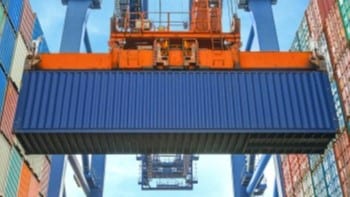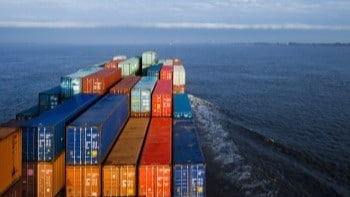Free on Board (FOB)

.
What is Free on Board (FOB)?
An Incoterms® rule, applicable only to ocean or waterway transport, under which the seller clears the goods for export and delivers them on board the vessel nominated by the buyer at the named port of shipment, at which point risk transfers from seller to buyer. Buyer is responsible for arranging and paying for transport and any clearances during transit and for import.
Special note on ‘FOB’: The Incoterms® rule FOB – like all the Incoterms® rules – has a precise, carefully drafted meaning that traders should familiarize themselves with by reading the text of the Incoterms® 2020 rules themselves. To avoid confusion, if seller and buyer intend to incorporate the Incoterms® rule FOB into their contract of sale, they should clearly indicate that with words such as, “FOB [named port of delivery] Incoterms® 2020”.
This clarity is especially important because the three letters ‘FOB’ standing alone (without reference to the Incoterms® rules) may have various meanings to various actors in the supply chain. For example, the shipping industry generally recognizes four "types" of (non-Incoterms® rules) FOB shipping:
- FOB [place of origin], Freight Collect: the buyer assumes risk for the goods at the moment that they are picked up and signed for by the carrier, and he/she is responsible for all freight charges and risk
- FOB [place of origin], Freight Prepaid: the buyer assumes risk for the goods at the moment that they are picked up and signed for by the carrier, but the seller pays all shipping charges
- FOB [place of destination], Freight Collect: the seller retains risk for the goods until they are delivered to the buyer, but the buyer is responsible for shipping costs
- FOB [place of destination], Freight Prepaid: the seller retains risk for the goods until they are delivered to the buyer, and the seller pays all shipping costs
Note:
When an Incoterms® rule is included in a contract of sale, it creates legal obligations for the buyer and seller, which can have costly implications. Therefore, it is important that traders read and understand the precise wording of the Incoterms® rules carefully and choose the rule to include in their sale contract thoughtfully. For additional information and resources on the Incoterms® rules, and to purchase the full text of the Incoterms® 2020 rules, visit the ICC website.
Related Terms
Consignee Consignor Free Alongside Ship (FAS) Free Carrier (FCA) Incoterms
Related FAQs
Why are Incoterms rules necessary?
How many Incoterms rules are there?
What do Incoterms rules cover?
What don't Incoterms rules cover?
What can I do right now to help my business with Incoterms rules?
How do Incoterms rules affect my shipment?
Related Content
-

Incoterms
Learn more about the eleven existing Incoterms® rules and what they mean for your shipping business.
Learn More
-

Freight Services
Whether you’re a seasoned supply chain expert or this is your first time just starting out, we’re here to help.
Learn More
-

Ocean Freight
Every day we move ocean freight across 2,300+ lanes. So if you're nervous about going ocean, don't sweat it.
Learn More


